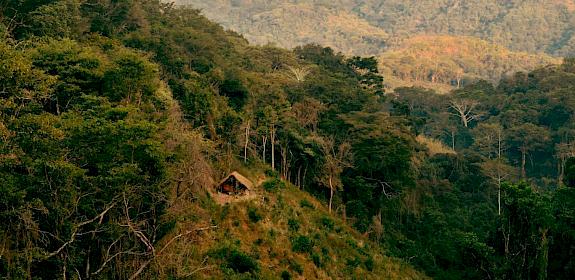
Poison Arrow Frog Dendrobatidae spp.
i
working with international conventions
The promotion of international co-operation, providing advice and recommendations, along with action at the national level are among TRAFFIC’s top priorities to address wildlife trade issues.
These priorities cut across all parts of our conservation programme and align closely with the aims of international Conventions, such as the Convention on Biological Diversity (CBD).
objectives of the CBD
For many years, TRAFFIC has provided expert advice, information and assistance towards decision-makers in support of the further development and implementation of the CBD. It's objectives are:
- The conservation of biological diversity
- The sustainable use of its components
- The fair and equitable sharing of the benefits arising out of the utilisation of genetic resources, including by appropriate access to genetic resources and by appropriate transfer of relevant technologies, taking into account all rights over those resources and to technologies, and by appropriate funding.
Leopard Panthera pardus
i
TRAFFIC's work with the CBD
Aichi biodiversity targets
Referencing the CBD Aichi Biodiversity Targets, TRAFFIC’s 2020 goal is to help reduce the pressure of illegal and unsustainable wildlife trade on biodiversity, and enhance the benefits to wildlife conservation and human well-being that derive from trade at sustainable levels.
TRAFFIC’s work typically focuses on specific Programmes of Work of the CBD, and our experts normally attend official CBD meetings, including Conferences of the Parties (CoPs), Meetings of the Subsidiary Body on Scientific, Technical and Technological Advice (SBSTTA), as well as specific Working Groups (WG) and Liaison Groups (LG) of the Convention and to provide information and assistance to help in the deliberations and decision-making processes of these meeetings.
wild plant harvesting
People worldwide rely on wild plant species as a source of food, income, medicine, construction materials, ornamentation and other products. TRAFFIC has provided input to the CBD’s Global Strategy for Plant Conservation (GPSC) and also helped develop the FairWild Standard to support efforts to ensure wild plants are managed, harvested and traded sustainably.
The following Case Studies illustrate TRAFFIC's work in supporting sustainable wild-harvesting and equitable trade in medicinal and aromatic plants:
wild game meat
Worldwide many people, often the rural poor, rely on wild gamemeat as a vital source of nourishment.
TRAFFIC has provided input into the CBD’s Liaison Group on Bushmeat, which aims to ensure fair and equitable access to wild meat resources, while also securing the sustainability of such supplies—to benefit people and protect biodiversity. Through our work we have supported Parties to concur on the adoption CBD Decision XI/25 at CoP11 in Hyderabad, India, on the “Sustainable Use of Biodiversity: Bushmeat and Sustainable Wildlife Management” and the therein integrated ‘Revised Recommendations of the CBD Liaison Group on Bushmeat’.
A Moustached Guenon among animals on sale at a wild game meat market in Yaoundé, Cameroon © A. Walmsley / TRAFFIC
i
applied taxonomy
In the field of applied taxonomy, still more capacity building is needed for field identification of flora and fauna to support conservation and sustainable use of biodiversity.
TRAFFIC has produced a number of species identification sheets and run workshops to support capacity building measures, and has built up a significant body of expertise and knowledge on this issue. TRAFFIC warmly welcomes the Revised Draft Capacity–Building Strategy for the Global Taxonomy Initiative (GTI) that stemmed from SBSTTA-15 & SBSTTA-16. Subsequently, TRAFFIC has supported Parties to concur on the adoption CBD Decision XI/29 at CoP11 in Hyderabad, India, on the ‘Capacity-building Strategy for the Global Taxonomy Initiative.’ TRAFFIC has also contributed to the Global Biodiversity Outlook, and is a partner of the Biodiversity Indicators Partnership (BIP), a global initiative to further develop and promote indicators for the consistent monitoring and assessment of biodiversity.
Emperor Scorpion Pandinus imperator © Danny Perez / CC Generic 2.0
i




